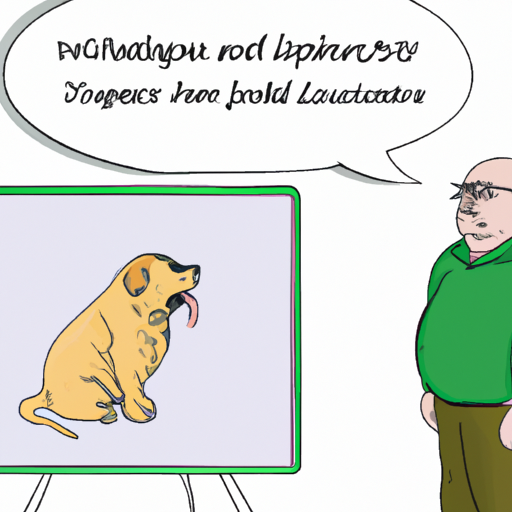“`markdown
What is Hypothyroidism in Dogs?
Understanding Hypothyroidism
Hypothyroidism is a common condition in dogs, especially in middle-aged to older ones. It’s a disorder of the endocrine system where your dog’s thyroid gland doesn’t produce enough thyroid hormone. Just imagine if your car didn’t have enough oil to keep it running smoothly. It’s the same with your dog’s body. Without enough thyroid hormone, your dog’s metabolism can slow down, leading to a range of health problems.
Signs and Symptoms
You need to be vigilant about any changes in your dog’s behavior or physical condition. Here are some common signs to look out for:
- Weight gain without an increase in appetite
- Lethargy and lack of desire to exercise
- Cold intolerance (gets cold easily)
- Dry and dull coat with excessive shedding
- Skin infections
Remember, these signs can also be indicative of other health issues, so it’s always best to consult with your veterinarian.
Causes and Risk Factors
Hypothyroidism in dogs usually stems from one of two conditions: lymphocytic thyroiditis or idiopathic thyroid gland atrophy. The former is an autoimmune condition, while the latter involves the healthy thyroid tissue being replaced by fat.
Certain breeds are more prone to hypothyroidism than others. These include:
- Golden Retrievers
- Doberman Pinschers
- Irish Setters
- Boxers
- Dachshunds
- Cocker Spaniels
Diagnosis and Treatment
Diagnosis is typically made through blood tests that measure the level of various thyroid hormones in your dog’s blood. If diagnosed, your vet will likely prescribe a daily medication that your dog will need to take for the rest of its life.
| Test | Normal Range |
|---|---|
| Total T4 | 1.0 – 4.0 mcg/dL |
| Free T4 by ED | 10 – 50 pg/mL |
| Total T3 | 40 – 200 ng/dL |
| Free T3 | 2.0 – 4.5 pg/mL |
| TSH | 0 – 0.6 ng/mL |
Coping and Management
Managing hypothyroidism in dogs involves a lifelong commitment to medication and regular vet check-ups. But don’t worry, with proper management, your dog can lead a normal, happy, and active life.
You might want to adjust your dog’s diet and exercise routine to help with weight management. Don’t forget to shower your furry friend with plenty of love and comfort!
Frequently Asked Questions
Q: Can hypothyroidism in dogs be cured?
A: No, but it can be effectively managed with medication and lifestyle changes.
Q: Can hypothyroidism in dogs lead to other health problems?
A: If left untreated, it can contribute to obesity, heart disease, and other health issues.
Q: How often should my dog be tested for hypothyroidism?
A: After the initial diagnosis, your vet will likely recommend regular blood tests to monitor your dog’s hormone levels.
“`



